In middle age, Annie Oh—wife, mother, and outsider artist—has shaken her family to its core. After twenty-seven years of marriage and three children, Annie has fallen in love with Viveca, the wealthy, cultured, confident Manhattan art dealer who orchestrated her professional success.
Annie and Viveca plan to wed in the Oh family's hometown of Three Rivers, Connecticut, where gay marriage has recently been legalized. But the impending wedding provokes some very mixed reactions and opens a Pandora's box of toxic secrets—dark and painful truths that have festered below the surface of the Ohs' lives.
We Are Water is an intricate and layered portrait of marriage, family, and the inexorable need for understanding and connection, told in the alternating voices of the Ohs—nonconformist Annie; her ex-husband, Orion, a psychologist; Ariane, the do-gooder daughter, and her twin, Andrew, the rebellious only son; and free-spirited Marissa, the youngest Oh. Set in New England and New York during the first years of the Obama presidency, it is also a portrait of modern America, exploring issues of class, changing social mores, the legacy of racial violence, and the nature of creativity and art.
With humor and breathtaking compassion, Wally Lamb brilliantly captures the essence of human experience in vivid and unforgettable characters struggling to find hope and redemption in the aftermath of trauma and loss. We Are Water is vintage Wally Lamb—a compulsively readable, generous, and uplifting masterpiece that digs deep into the complexities of the human heart to explore the ways in which we search for love and meaning in our lives.
What if your whole world was a lie?
What if a single revelation—like a single choice—changed everything?
What if love and loyalty made you do things you never expected?
The faction-based society that Tris Prior once believed in is shattered—fractured by violence and power struggles and scarred by loss and betrayal. So when offered a chance to explore the world past the limits she's known, Tris is ready. Perhaps beyond the fence, she and Tobias will find a simple new life together, free from complicated lies, tangled loyalties, and painful memories.
But Tris's new reality is even more alarming than the one she left behind. Old discoveries are quickly rendered meaningless. Explosive new truths change the hearts of those she loves. And once again, Tris must battle to comprehend the complexities of human nature—and of herself—while facing impossible choices about courage, allegiance, sacrifice, and love.
Told from a riveting dual perspective, Allegiant, by #1 New York Times best-selling author Veronica Roth, brings the Divergent series to a powerful conclusion while revealing the secrets of the dystopian world that has captivated millions of readers in Divergent and Insurgent.
Catie Marron’s City Parks captures the spirit and beauty of eighteen of the world’s most-loved city parks. Zadie Smith, Ian Frazier, Candice Bergen, Colm Tóibín, Nicole Krauss, Jan Morris, and a dozen other remarkable contributors reflect on a particular park that holds special meaning for them.
Andrew Sean Greer eloquently paints a portrait of first love in the Presidio; André Aciman muses on time’s fleeting nature and the changing face of New York viewed from the High Line; Pico Iyer explores hidden places and privacy in Kyoto; Jonathan Alter takes readers from the 1968 race riots to Obama’s 2008 victory speech in Chicago’s Grant Park; Simon Winchester invites us along on his adventures in the Maidan; and Bill Clinton writes of his affection for Dumbarton Oaks.
Oberto Gili’s color and black-and-white photographs unify the writers’ unique and personal voices. Taken around the world over the course of a year, in every season, his pictures capture the inherent mood of each place. Fusing images and text, City Parks is an extraordinary and unique project: through personal reflection and intimate detail it taps into collective memory and our sense of time’s passage.
For more than two centuries, E pluribus unum—"Out of many, one"—has been featured on America's official government seals and stamped on its currency. But how did America become "one nation, indivisible"? In this monumental history, Simon Winchester addresses these questions, bringing together the breathtaking achievements of those American pioneers who helped to forge and unify the new nation, and who toiled fearlessly to bond the citizens and geography of the United States from its very beginnings. This sweeping narrative details how these daring men, some famous, some forgotten, left their mark on America's natural landscapes, through courage, ingenuity, and hard work.
Winchester follows the footsteps of America's most crucial innovators, thinkers, and explorers, from Lewis and Clark and the leaders of the Great Surveys of the West to the builders of the first transcontinental railroad and the curmudgeonly civil engineer who oversaw the creation of more than three million miles of highway. Winchester travels across vast swaths of the American landscape, from Pittsburgh to Portland, Seattle to Anchorage, Truckee to Laramie, using the five classical elements—Wood, Earth, Water, Fire, and Metal—to chart the contributions these adventurous leaders made to connect the diverse communities within the United States and ensure the future of the American project begun in 1776.
The Men Who United the States is an unforgettable journey of unprecedented scope across time and open spaces, providing a new lens through which to view American history, led by one of our most gifted writers.
What if history had a sound track? What would it tell us about ourselves? Based on a thirty-part BBC Radio series and podcast, Noise explores the human dramas that have revolved around sound at various points in the last 100,000 years, allowing us to think in fresh ways about the meaning of our collective past.
Though we might see ourselves inhabiting a visual world, our lives have always been hugely influenced by our need to hear and be heard. To tell the story of sound--music and speech, but also echoes, chanting, drumbeats, bells, thunder, gunfire, the noise of crowds, the rumbles of the human body, laughter, silence, conversations, mechanical sounds, noisy neighbors, musical recordings, and radio--is to explain how we learned to overcome our fears about the natural world, perhaps even to control it; how we learned to communicate with, understand, and live alongside our fellow beings; how we've fought with one another for dominance; how we've sought to find privacy in an increasingly noisy world; and how we've struggled with our emotions and our sanity.
Oratory in ancient Rome was important not just for the words spoken but for the sounds made--the tone, the cadence, the pitch of the voice--how that voice might have been transformed by the environment in which it was heard and how the audience might have responded to it. For the Native American tribes first encountering the European colonists, to lose one's voice was to lose oneself. In order to dominate the Native Americans, European colonists went to great effort to silence them, to replace their "demonic" "roars" with the more familiar "bugles, speaking trumpets, and gongs."
Breaking up the history of sound into prehistoric noise, the age of oratory, the sounds of religion, the sounds of power and revolt, the rise of machines, and what he calls our "amplified age," Hendy teases out continuities and breaches in our long relationship with sound in order to bring new meaning to the human story.
First published in the United Kingdom to great acclaim, Unapologetic is a wonderfully pugnacious defense of Christianity. But it isn't an argument that Christianity is true—because how could anyone know that (or indeed its opposite)? It's an argument that Christianity is recognizable, drawing on the deep and deeply ordinary vocabulary of human feeling, satisfying those who believe in it by offering a ruthlessly realistic account of the grown-up dignity of Christian experience.
Unhampered by niceness, this is a book for believers who are fed up with being patronized, for non-believers curious about how faith can possibly work in the twenty-first century, and for anyone who feels there is something indefinably wrong, literalistic, anti-imaginative, and intolerant about the way the atheist case is now being made.
Regret was for people with nothing to defend, people who had no water.
Lynn knows every threat to her pond: drought, a snowless winter, coyotes, and, most important, people looking for a drink. She makes sure anyone who comes near the pond leaves thirsty or doesn't leave at all.
Confident in her own abilities, Lynn has no use for the world beyond the nearby fields and forest. Having a life means dedicating it to survival and the constant work of gathering wood and water. Having a pond requires the fortitude to protect it, something Mother taught her well during their quiet hours on the rooftop, rifles in hand.
But wisps of smoke on the horizon mean one thing: strangers. The mysterious footprints by the pond, the nighttime threats, and the gunshots make it all too clear Lynn has exactly what they want, and they won't stop until they get it. . . .
With evocative, spare language and incredible drama, danger, and romance, debut author Mindy McGinnis depicts one girl's journey in a barren world not so different from our own.
Annie and Viveca plan to wed in the Oh family's hometown of Three Rivers, Connecticut, where gay marriage has recently been legalized. But the impending wedding provokes some very mixed reactions and opens a Pandora's box of toxic secrets—dark and painful truths that have festered below the surface of the Ohs' lives.
We Are Water is an intricate and layered portrait of marriage, family, and the inexorable need for understanding and connection, told in the alternating voices of the Ohs—nonconformist Annie; her ex-husband, Orion, a psychologist; Ariane, the do-gooder daughter, and her twin, Andrew, the rebellious only son; and free-spirited Marissa, the youngest Oh. Set in New England and New York during the first years of the Obama presidency, it is also a portrait of modern America, exploring issues of class, changing social mores, the legacy of racial violence, and the nature of creativity and art.
With humor and breathtaking compassion, Wally Lamb brilliantly captures the essence of human experience in vivid and unforgettable characters struggling to find hope and redemption in the aftermath of trauma and loss. We Are Water is vintage Wally Lamb—a compulsively readable, generous, and uplifting masterpiece that digs deep into the complexities of the human heart to explore the ways in which we search for love and meaning in our lives.
What if your whole world was a lie?
What if a single revelation—like a single choice—changed everything?
What if love and loyalty made you do things you never expected?
The faction-based society that Tris Prior once believed in is shattered—fractured by violence and power struggles and scarred by loss and betrayal. So when offered a chance to explore the world past the limits she's known, Tris is ready. Perhaps beyond the fence, she and Tobias will find a simple new life together, free from complicated lies, tangled loyalties, and painful memories.
But Tris's new reality is even more alarming than the one she left behind. Old discoveries are quickly rendered meaningless. Explosive new truths change the hearts of those she loves. And once again, Tris must battle to comprehend the complexities of human nature—and of herself—while facing impossible choices about courage, allegiance, sacrifice, and love.
Told from a riveting dual perspective, Allegiant, by #1 New York Times best-selling author Veronica Roth, brings the Divergent series to a powerful conclusion while revealing the secrets of the dystopian world that has captivated millions of readers in Divergent and Insurgent.
Catie Marron’s City Parks captures the spirit and beauty of eighteen of the world’s most-loved city parks. Zadie Smith, Ian Frazier, Candice Bergen, Colm Tóibín, Nicole Krauss, Jan Morris, and a dozen other remarkable contributors reflect on a particular park that holds special meaning for them.
Andrew Sean Greer eloquently paints a portrait of first love in the Presidio; André Aciman muses on time’s fleeting nature and the changing face of New York viewed from the High Line; Pico Iyer explores hidden places and privacy in Kyoto; Jonathan Alter takes readers from the 1968 race riots to Obama’s 2008 victory speech in Chicago’s Grant Park; Simon Winchester invites us along on his adventures in the Maidan; and Bill Clinton writes of his affection for Dumbarton Oaks.
Oberto Gili’s color and black-and-white photographs unify the writers’ unique and personal voices. Taken around the world over the course of a year, in every season, his pictures capture the inherent mood of each place. Fusing images and text, City Parks is an extraordinary and unique project: through personal reflection and intimate detail it taps into collective memory and our sense of time’s passage.
For more than two centuries, E pluribus unum—"Out of many, one"—has been featured on America's official government seals and stamped on its currency. But how did America become "one nation, indivisible"? In this monumental history, Simon Winchester addresses these questions, bringing together the breathtaking achievements of those American pioneers who helped to forge and unify the new nation, and who toiled fearlessly to bond the citizens and geography of the United States from its very beginnings. This sweeping narrative details how these daring men, some famous, some forgotten, left their mark on America's natural landscapes, through courage, ingenuity, and hard work.
Winchester follows the footsteps of America's most crucial innovators, thinkers, and explorers, from Lewis and Clark and the leaders of the Great Surveys of the West to the builders of the first transcontinental railroad and the curmudgeonly civil engineer who oversaw the creation of more than three million miles of highway. Winchester travels across vast swaths of the American landscape, from Pittsburgh to Portland, Seattle to Anchorage, Truckee to Laramie, using the five classical elements—Wood, Earth, Water, Fire, and Metal—to chart the contributions these adventurous leaders made to connect the diverse communities within the United States and ensure the future of the American project begun in 1776.
The Men Who United the States is an unforgettable journey of unprecedented scope across time and open spaces, providing a new lens through which to view American history, led by one of our most gifted writers.
What if history had a sound track? What would it tell us about ourselves? Based on a thirty-part BBC Radio series and podcast, Noise explores the human dramas that have revolved around sound at various points in the last 100,000 years, allowing us to think in fresh ways about the meaning of our collective past.
Though we might see ourselves inhabiting a visual world, our lives have always been hugely influenced by our need to hear and be heard. To tell the story of sound--music and speech, but also echoes, chanting, drumbeats, bells, thunder, gunfire, the noise of crowds, the rumbles of the human body, laughter, silence, conversations, mechanical sounds, noisy neighbors, musical recordings, and radio--is to explain how we learned to overcome our fears about the natural world, perhaps even to control it; how we learned to communicate with, understand, and live alongside our fellow beings; how we've fought with one another for dominance; how we've sought to find privacy in an increasingly noisy world; and how we've struggled with our emotions and our sanity.
Oratory in ancient Rome was important not just for the words spoken but for the sounds made--the tone, the cadence, the pitch of the voice--how that voice might have been transformed by the environment in which it was heard and how the audience might have responded to it. For the Native American tribes first encountering the European colonists, to lose one's voice was to lose oneself. In order to dominate the Native Americans, European colonists went to great effort to silence them, to replace their "demonic" "roars" with the more familiar "bugles, speaking trumpets, and gongs."
Breaking up the history of sound into prehistoric noise, the age of oratory, the sounds of religion, the sounds of power and revolt, the rise of machines, and what he calls our "amplified age," Hendy teases out continuities and breaches in our long relationship with sound in order to bring new meaning to the human story.
First published in the United Kingdom to great acclaim, Unapologetic is a wonderfully pugnacious defense of Christianity. But it isn't an argument that Christianity is true—because how could anyone know that (or indeed its opposite)? It's an argument that Christianity is recognizable, drawing on the deep and deeply ordinary vocabulary of human feeling, satisfying those who believe in it by offering a ruthlessly realistic account of the grown-up dignity of Christian experience.
Unhampered by niceness, this is a book for believers who are fed up with being patronized, for non-believers curious about how faith can possibly work in the twenty-first century, and for anyone who feels there is something indefinably wrong, literalistic, anti-imaginative, and intolerant about the way the atheist case is now being made.
Regret was for people with nothing to defend, people who had no water.
Lynn knows every threat to her pond: drought, a snowless winter, coyotes, and, most important, people looking for a drink. She makes sure anyone who comes near the pond leaves thirsty or doesn't leave at all.
Confident in her own abilities, Lynn has no use for the world beyond the nearby fields and forest. Having a life means dedicating it to survival and the constant work of gathering wood and water. Having a pond requires the fortitude to protect it, something Mother taught her well during their quiet hours on the rooftop, rifles in hand.
But wisps of smoke on the horizon mean one thing: strangers. The mysterious footprints by the pond, the nighttime threats, and the gunshots make it all too clear Lynn has exactly what they want, and they won't stop until they get it. . . .
With evocative, spare language and incredible drama, danger, and romance, debut author Mindy McGinnis depicts one girl's journey in a barren world not so different from our own.

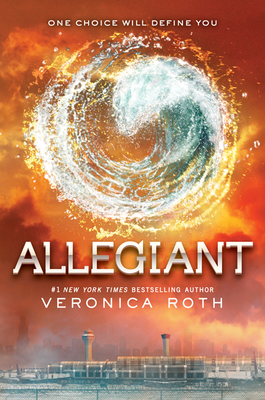
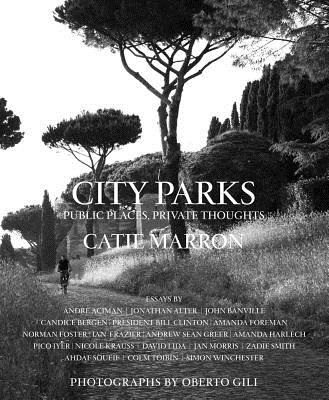
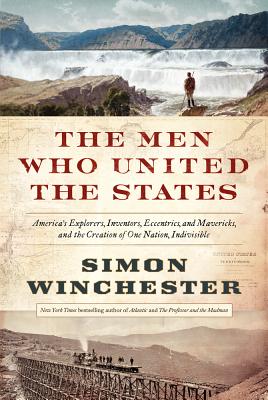
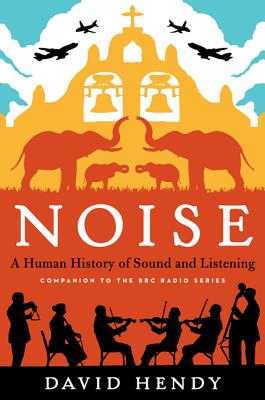
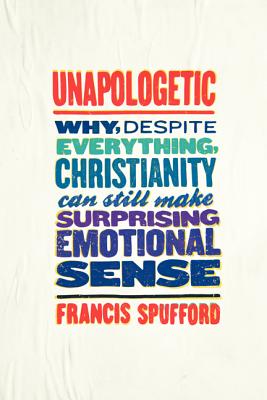
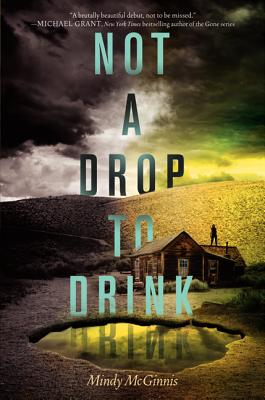
No comments:
Post a Comment